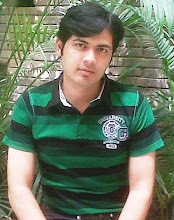 In one of the deadliest attacks in Chhattisgarh, Maoists claimed the lives of 75 policemen including a superintendent of police.According to the reports, the attack took place when 120 CRPF personnel were returning from a road opening duty in the Naxalite-infested Mukrana forest.
In one of the deadliest attacks in Chhattisgarh, Maoists claimed the lives of 75 policemen including a superintendent of police.According to the reports, the attack took place when 120 CRPF personnel were returning from a road opening duty in the Naxalite-infested Mukrana forest.Over 1,000 Maoists reportedly fired at the jawans from hill tops.Though suddenly overwhelmed by a heavily armed force of Maoists, the CRPF men who were caught in a brutal ambush on Tuesday,April 06 did not go down meekly. The encounter raged for a couple of hours and the men fell one by one till a clutch of injured survivors ran out of ammunition.
 Now,From Where They Are Getting Money.So,for That I am Compiling Data With Indepth Analysis From TOI..................
Now,From Where They Are Getting Money.So,for That I am Compiling Data With Indepth Analysis From TOI.................. A yearly turnover in excess of Rs 1,500 crore. Targets raised by 15% every year, investments here, cutbacks there, acquisitions made, salaries paid, perks for the star performers...That’s the mid-sized corporation called the Maoist empire.
Every paisa of it comes from extortion, drugs, looting, ransom and robbery. In states where the rebels’ writ runs, each sack of potatoes, every truck consignment, every government salary has a price. In Jharkhand, for instance, the going rate is Rs 5 per sack of vegetables and Rs 1 crore per acre of poppy farm.
 The annual turnover of the Maoists matches or even exceeds that of companies such as Exide, CESC or Hindustan Motors. According to intelligence agencies, Bihar, Jharkhand and Andhra Pradesh contribute around 40% of the total revenue. Most of the Maoist takings – Rs 300 crore to Rs 400 crore – comes from mineral-rich Jharkhand. Ten per cent comes from backward Orissa. Bengal, where the Maoists are in consolidation-and-expansion mode, isn’t particularly cash-rich but is allotted the bulk of the investment portfolio. The rebels extort crores even from Maharashtra, Karnataka and Tamil Nadu where they don’t have much of a hold.
The annual turnover of the Maoists matches or even exceeds that of companies such as Exide, CESC or Hindustan Motors. According to intelligence agencies, Bihar, Jharkhand and Andhra Pradesh contribute around 40% of the total revenue. Most of the Maoist takings – Rs 300 crore to Rs 400 crore – comes from mineral-rich Jharkhand. Ten per cent comes from backward Orissa. Bengal, where the Maoists are in consolidation-and-expansion mode, isn’t particularly cash-rich but is allotted the bulk of the investment portfolio. The rebels extort crores even from Maharashtra, Karnataka and Tamil Nadu where they don’t have much of a hold.Read more...















